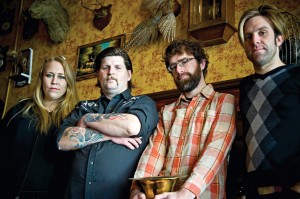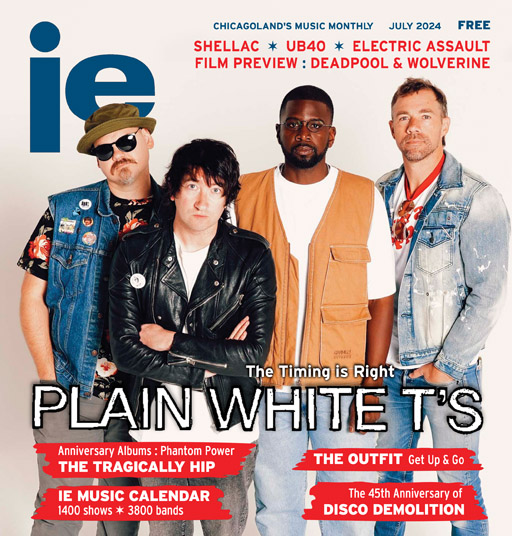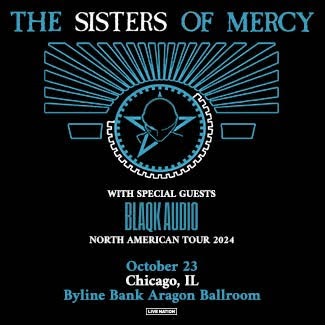Caught In A Mosh: November 2012
Attempting to make it as a New Yorker and failing carries with it a few stories. Here is a doozy: I once lived next door to an Irish nurse who would drop a bowling ball on the floor after midnight because she didn’t like the Brazilian couple downstairs. She threw boric acid on their child. She remarked that she was taping me. The super said her apartment was full of pills. I couldn’t sleep, and I took it to work with me.
I asked my co-worker, who was born in another country, if I should move. He said people everywhere on the planet Earth are the same, and not in a good way. Also, welcome to New York. His words didn’t help my situation in Queens, but after listening to hours of instrumental drone/doom, I determined they apply to the band Earth. The songs – they’re all the same, albeit in a good way.
“A Multiplicity Of Doors” from this year’s Angels Of Darkness, Demons Of Light II (Southern Lord) illustrates Earth’s hypnotic formula: One riff, 13 minutes. Inside the riff lives a cello’s groaning narrative and a clean ship made to speak by drums invoking the sea itself. A single riff also defines “Ouroboros Is Broken” from 1991’s Extra-Capsular Extraction (an EP on which Kurt Cobain lends despondent vocals). Recorded in 1990 shortly after Earth formed in Washington state, the 18-minute track communicates in massive distorted downstrokes and drum-machine crush with no trace of today’s organic clarity. But the story Earth tells, violent or peaceful, is universal.
I catch Earth drummer Adrienne Davies by landline in the Seattle home she shares with founding guitarist Dylan Carlson. “Somehow it only seems to work in the kitchen,” she says with a laugh. The couple will appear with bassist Don McGreevy and keyboardist/trombonist Steve Moore at Township on Nov. 16 and 17.
Mosh: You joined the band in 2001. It was lonely being an Earth fan in the ’90s, wouldn’t you agree?
Adrienne Davies: It was the ugly redheaded stepchild. It was on Sub Pop, but it wasn’t like any of the other Sub Pop bands. I don’t know how much [the record contract] worked in the band or the label’s favor, but [Earth] was definitely something totally unique, and that was what first blew my mind when I first heard it. I don’t remember anything like it. Live, it was a totally different beast. I remember seeing Earth play when it was just Dylan, and he’d have his back to the audience, and you would hardly even see him. It was just stacks upon stacks of Sunn [amplifiers].
M: What were the expectations a live drummer could bring to material such as “Ouroboros Is Broken,” a song that used former bassist Joe Preston’s drum machine on Extra-Capsular Extraction but would be re-recorded for 2007’s Hibernaculum?
AD: Drum machine or not, I always thought it was just a strong track all around. I wanted to do something that could bring it into how to Earth plays now: a little more spacious, a little more dense, but still powerful. Live, that song is about really just letting it build. I’m not changing the basic time signature. I’m not changing it too much . . . but it is a very different aesthetic, the way I play drums vs. a drum machine from 20 years ago.
M: Are drums now a lead instrument in Earth?
AD: On Hex and even [The Bees Made Honey In The Lion’s Skull], not so much. The recordings were such thick, dense projects. There were so many layers of tracks and instruments that the drums had to be absolutely stripped- down and bare bones and very specific. There wasn’t a lot of freedom for them to shine in the beginning. But [with] the last two albums . . . I felt the drums really had the freedom to step forward and be much more loose and present from the very beginning. So, yeah, I think they’re becoming that way.
M: I don’t hear an abundance of percussion on the new album, but it’s my understanding you make up half of the songwriting team.
AD: The last two albums were much more [efforts] of a group. Angels Part One was the most constructed, where we went into the studio with at least a framework of where the songs were going, and then they elaborated bit by bit. Then the second album (other than “A Multiplicity Of Doors,” which was the only song [on the] album that we actually had ready to go), the whole of it was improv.
M: What are you doing in the studio if you’re not playing drums?
AD: Listening. Thinking of things that we can do or not do. Striking down ideas, which is just as important as having them, so you don’t overdo it. You don’t want to throw the kitchen sink at it. You don’t want to see what sticks. You just want to serve the song. And also we’re very much into the album itself: The beginning, the middle, the end. The peak and the dynamic of the album. Just kind of crafting it and sculpting it into what it needs to be.
M: What advantages do the lack of vocals and the increasing distance from a traditional rock form give a band? Are you fostering a sense of timelessness?
AD: It leaves it up to the listener to interpret their own meaning from it . . . because vocals definitely pinpoint and confine a song, which is great, but having no vocals and just song titles and album titles, I think does kind of make it more timeless, like you said. Everyone can discern their own meaning from whatever emotion hits them.
M: It seems just when you’ve exited rock, “His Teeth Did Brightly Shine” evokes the gentle tribal pull of Black Sabbath’s “Planet Caravan.” Earth was the name Black Sabbath first used. Do you and Dylan ever sit around listening to Paranoid and the like, or is classic heavy metal strictly ingrained at this point?
AD: It’s pretty ingrained. Every once in awhile in the tour van it’s nice to throw something on that reminds you of old times. Whatever. A little Dio every now and then. Some Slayer. Just something to kind of break up the other stuff. I like metal, but I know that Dylan still very, very much loves it.
M: In an interview last year with Invisible Oranges, you mentioned that before recording the first Angels, Dylan was going through a health crisis, and he had said it might be his last album. Then he recovered. Has he stayed healthy?
AD: He’s doing great. A 20-year-old, perfect-health person would have trouble with [his schedule, which currently outlines a three-month worldwide tour]. He’s got it under control. It was more of a health scare than anything. He’s got medicine, and as long as he’s doing everything right, which he is, he should be fine.
M: If people want to see a video of Dylan Carlson, online search results prefer footage of him in the movie Kurt & Courtney over the performances or the music of Earth. Will he ever eclipse his association with Kurt Cobain?
AD: You can’t control what the world knows you as or knows you for. But, I really don’t think Dylan cares all that much. He just worries about the here and now, and doing his best work now. It’s not really that bothersome. It could be a little annoying, but not enough to get pissed about it or anything.
KNOWER OF THE WICKED: “We’re drawn to music that flirts with our expectations and then gently plays jokes on them,” writes David Brooks in The Social Animal. This is the part of the book where a retired government official learns woodcarving and takes a CD course in classical music. Not exactly the discipline of Chicago’s anarchic “now wave” music experiment in the mid-’90s (a no-wave revival defined by comic/label Skin Graft), but it brings to mind central player Weasel Walter nonetheless.
The bestial free-jazz drummer dominated several genre-desecrating and pulverizing acts, including The Flying Luttenbachers, often while wearing corpse paint and a tie. He now drums and composes in Behold The Arctopus, a New York shred-metal trio whose new Horrorscension (Black Market Activities) is a theater of war.Percussive hyperbole, concussive time signatures, 12-string taps, and blunt riffs strafe a six-track minefield score. No vocals. No survivors.
“We just spent three years working on 25 minutes of material,” Walter explains by phone from his current digs in Brooklyn. The former Chicagoan wrote two songs; guitarist Colin Marston (Krallice, Dysrhythmia, Gorguts) wrote three. “Putrefucktion,” a cut-and-paste storm of rhythm made downright nauseating by guitarist Mike Lerner‘s paranormal noodling, is not even performable by humans.
“What Behold The Arctopus is doing is a somewhat more idiomatically metal version of what the late Flying Luttenbachers were doing. We write compositions, and they have a lot of material inside of them, and dumb people probably aren’t going to get it,” he claims.
Walter likens his approach to that of black/death acts Sadistik Exekution and Conqueror. “It’s a freakout. I don’t really care how technical it is. To me, nothing is technical. If you try hard enough and spend enough time trying to figure something out, you can play anything.”
MOSH-WORTHY . . . LIVE: Deicide (Mojoes, 11/12); Maggot Twat (Chicago City Limits, 11/15); Novembers Doom (Reggies, 11/16); Nachtmystium (Ultra Lounge, 11/21); Cianide, Ares Kingdom (Empty Bottle, 11/24).
MOSH-WORTHY: Von Satanic Blood (self-released); Doomsday Doomsday (Disorder); Bedemon Symphony Of Shadows (Svart); Dethklok Dethalbum III (Williams Street); Midnight Complete And Total Hell (Hells Headbangers).
— Mike Meyer
Category: Caught In A Mosh, Columns, Monthly











